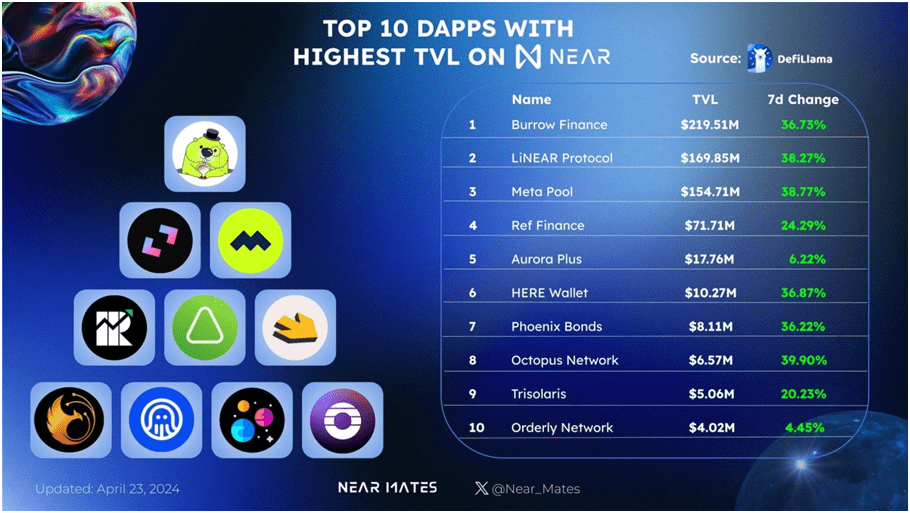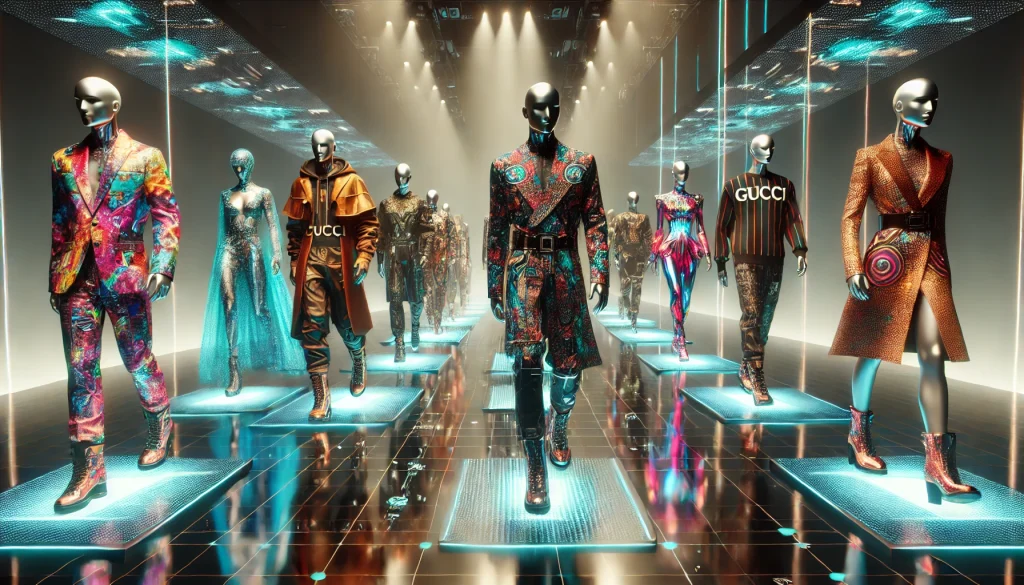

While Non-Fungible Tokens (NFTs) have exploded in popularity in recent years, with headlines often dominated by million-dollar sales of digital ape illustrations, their potential applications extend far beyond the world of collectible pictures.
This technology offers a unique way to represent ownership, verify authenticity, and create entirely new revenue streams across various industries.
Below are some of the most exciting NFT use cases that go beyond the world of art, gaming, and event ticketing.

Source: dxtalks
The concept of virtual real estate has exploded alongside the rise of the metaverse, a network of interconnected virtual worlds where users can socialize, play games, shop, and even work. NFTs (Non-Fungible Tokens) play a crucial role in this digital land rush, allowing users to own and manage their virtual plots. Let’s get deeper into how NFTs are transforming the landscape of virtual real estate.
When it comes to the virtual world, people are building elaborate structures, hosting events, and interacting with each other. This is the essence of the metaverse, and within it lies virtual real estate – digital parcels of land represented by NFTs. Owning an NFT representing a piece of virtual land grants you exclusive rights and control over that space. You can:
Major corporations and celebrities have already begun investing in virtual real estate, recognizing its potential. Luxury brands like Gucci have opened virtual stores, while musicians like Snoop Dogg have built virtual estates, showcasing the diverse applications of this digital land ownership. These early adopters are laying the groundwork for a thriving virtual economy within the metaverse.
Several popular metaverse platforms offer virtual land ownership through NFTs. Here are a few examples:
Source: Monks
NFTs are making waves in the fashion world, not just as expensive digital bragging rights, but as statement pieces for avatars strutting their stuff in the metaverse.
Just think about it – attending a virtual concert or a high-society gathering in the metaverse, rocking a one-of-a-kind digital outfit represented by an NFT. This isn’t a scene from a futuristic movie – it’s already happening.
Major fashion houses like Gucci and Dolce & Gabbana are leading the charge, creating exclusive NFT clothing lines. These virtual garments can be even more expensive than their physical counterparts, showcasing the potential for a thriving digital fashion economy.
But it’s not just about exorbitant prices. NFTs allow for innovative marketing strategies, letting brands engage with a tech-savvy audience and showcase their creativity in a whole new way.
Imagine a world where fashion shows take place in virtual reality, and limited-edition digital garments become coveted collectibles. The lines between physical and digital fashion are blurring, and NFTs are at the forefront of this exciting transformation.
Source: Rolling Stone
Musicians are increasingly embracing NFTs as a tool to connect directly with fans and monetize their work. By tokenizing their songs, albums, and even memorabilia, artists can create limited-edition digital collectibles that generate additional income.
The feeling of owning a unique NFT tied to a never-before-released song by your favorite artist would be amazing. Just like Kings of Leon did with their “Time in Disguise” performance launched into space! This technology also allows for automatic royalty distribution to creators and producers whenever their NFT is resold, ensuring fairer compensation in the digital age.
Source: https://rarible.com/flyfishclub
The concept of a “foodverse” is taking shape, with NFTs playing a role in the food and beverage industry. It makes way to owning an NFT representing a secret recipe from a renowned chef or a limited-edition virtual wine tasting experience.
Some major fast-food chains are already experimenting with this concept. Additionally, NFTs can function as exclusive access passes to real-world dining experiences, like the Flyfish Club, a membership club offering access to a luxurious New York City venue through an NFT card.
The global supply chain is undergoing a transformation with the adoption of blockchain technology, and NFTs offer a valuable tool for increased transparency and efficiency.
Imagine an NFT acting as a digital twin for a product, following it throughout its journey from raw materials to finished goods.
This would allow for easier verification of product origin, ethical sourcing practices, and overall sustainability efforts. Consumers could gain valuable insights into the products they purchase, while businesses could improve logistics and identify areas for improvement.
Source: Milk Road
NFTs can be used as collateral for loans in the world of Decentralized Finance (DeFi). Similar to how you might use a car title to secure a loan, an NFT can be locked into a smart contract – a self-executing program on the blockchain – to secure a loan.
The terms of the loan, including interest rate and repayment period, are predetermined within the smart contract. While this offers an alternative lending option, it’s crucial to remember the volatile nature of the NFT market, which can impact the value of your collateral.
Source: Coindcx
Having complete control over your online identity, with your college diploma, house deed, or even plane tickets represented by secure NFTs on the blockchain is possible now! This is the promise of Web3, the next iteration of the internet, and utility NFTs play a key role.
These unique digital assets provide irrefutable proof of ownership and can be used for exclusive access to events or communities. Owning a utility NFT empowers individuals and fosters a sense of ownership in the Web3 environment.
Source: Ramotion
Two areas ripe for transformation are loyalty programs and brand protection. Let’s explore how NFTs are revolutionizing these aspects of the business landscape.
Think of a loyalty program that transcends points and plastic cards. NFTs offer a secure, digital alternative, fostering deeper customer engagement and unlocking new possibilities. Here’s how:
Exclusive Membership NFTs: Businesses can issue unique NFTs that act as membership cards. These NFTs could offer tiered benefits based on rarity, providing exclusive discounts, early access to products, or invitations to special events.
Gamified Experiences: NFTs can be integrated into loyalty programs to create a more engaging experience. Imagine receiving NFTs through purchases or completing challenges, which can then be used to unlock rewards or compete with other customers.
Frictionless Redemption: NFTs eliminate the hassle of managing points and tracking rewards. All information is securely stored on the blockchain, allowing for instant and transparent redemption of rewards.
Counterfeiting plagues numerous industries, eroding brand trust and costing businesses billions. NFTs offer a powerful weapon in this fight:
Source: LinkedIn
The healthcare industry can leverage NFTs to securely store and manage sensitive medical data.
Instead of bulky paper charts, a birth certificate issued as an NFT can create a permanent and tamper-proof record accessible only to authorized healthcare professionals. This streamlines medical record management with several key benefits:
The potential of NFTs in healthcare extends far beyond medical records. Here are some additional possibilities:
Source: NFT news today
NFTs offer a novel approach to fractional ownership of real-world assets. There is now a possibility of co-owning a valuable piece of art or a luxury car through an NFT representing a fraction of the ownership. This could democratize access to high-value investments and create a more liquid market for certain assets.
Source: antiersolutions
The education sector can leverage NFTs to issue tamper-proof digital diplomas and certificates. What if an NFT can represent your college degree, verifiable by any potential employer or educational institution. This would not only streamline credential verification but also create a more secure and reliable system for recording academic achievements.
NFTs offer creators, such as artists, musicians, and writers, a powerful tool for direct fan engagement and community building. Imagine exclusive content drops, personalized experiences, or even voting rights within a project offered through NFTs. This fosters a deeper connection between creators and their audiences, while also creating new revenue streams for content creators.
Source: provenanceproof
Charities and non-profit organizations are exploring NFTs as a means to raise funds in a transparent and verifiable manner. The possibility of owning a unique NFT tied to a charitable cause, with complete visibility into how the funds are used – is revolutionary. This fosters trust and incentivizes donations, while also creating a new fundraising avenue for worthy causes.
NFTs are a rapidly evolving technology with the potential to disrupt numerous industries. While the initial hype may have focused on digital art and collectibles, the true potential of NFTs lies in their ability to redefine ownership, enhance security, and create entirely new economic models.
As the technology matures and regulations are established, we can expect to see even more innovative applications emerge, shaping the future of the digital world.
You must be logged in to submit a review.
Copyright ©2025 Altcoin Analyst.